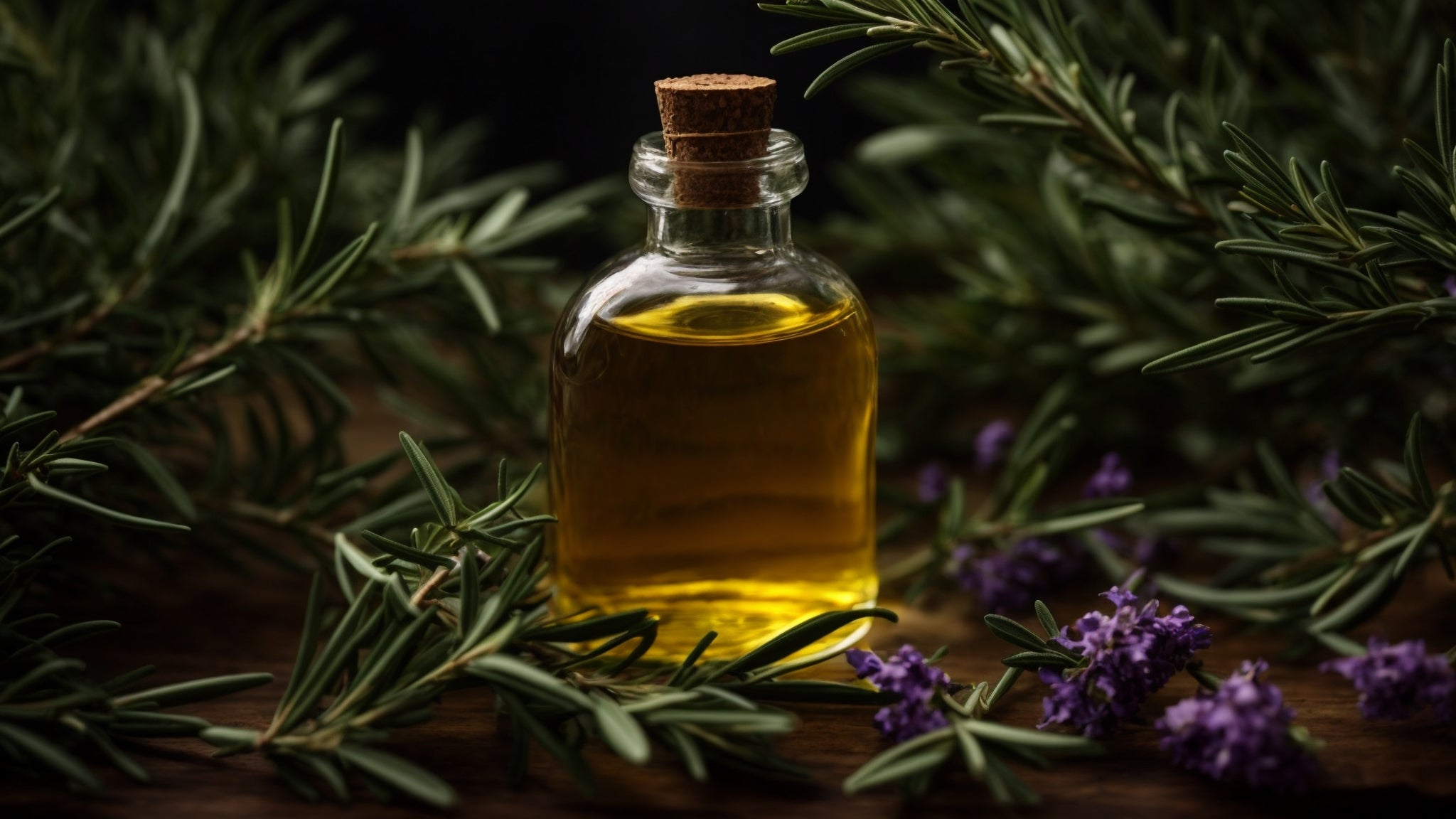The Quest for a Fuller, Healthier Beard: Does Beard Growth Oil Really Work?
For men seeking a thicker, fuller, and healthier beard, the journey often involves exploring various products and techniques. Among these, beard growth oils have gained significant popularity, promising to enhance hair growth and improve beard appearance. But do they actually work? The answer, like most things related to hair growth, is complex and depends on several factors. In this comprehensive guide, we'll delve into the potential benefits and limitations of beard growth oils, exploring their mechanisms, ingredients, and real-world effectiveness.
Understanding the Science Behind Beard Growth
Before we dive into beard growth oils, it's essential to understand the basics of hair growth. Hair growth occurs in cycles, with each cycle consisting of three phases:
- Anagen (Growth Phase): This is the active phase where hair follicles produce new hair cells, leading to visible growth. The length of the anagen phase varies depending on factors like genetics and health, but it typically lasts for 2 to 7 years for facial hair.
- Catagen (Transition Phase): A brief transitional phase where hair growth slows down, and the hair follicle shrinks. This phase usually lasts for about 2 to 3 weeks.
- Telogen (Resting Phase): The hair follicle remains dormant, and the hair shaft detaches, eventually shedding. This phase can last for 3 to 4 months, after which the hair follicle re-enters the anagen phase and the cycle begins anew.
Various factors, including genetics, hormones, nutrition, and overall health, influence the length of these phases and, therefore, the rate of hair growth. For instance, hormonal imbalances, deficiencies in essential nutrients, and conditions like hypothyroidism can disrupt the hair growth cycle, leading to slower growth or hair loss.
How Beard Growth Oils Aim to Enhance Growth
Beard growth oils are generally formulated with a blend of natural ingredients, each targeting specific aspects of hair growth. While the exact mechanisms by which these oils work are not fully understood, they are believed to influence hair growth through several pathways:
- Improved Blood Circulation: Some oils, like castor oil, are thought to stimulate blood flow to the scalp, delivering essential nutrients and oxygen to the hair follicles, promoting growth.
- Enhanced Follicle Function: Ingredients like jojoba oil and argan oil can help to regulate sebum production, preventing clogged pores that can inhibit hair growth. They also provide deep hydration, keeping the follicles healthy and functioning optimally.
- Reduced Breakage and Split Ends: Oils rich in antioxidants and fatty acids, such as argan oil and vitamin E, can strengthen the hair shaft, reducing breakage and split ends, allowing the hair to grow longer.
- Improved Scalp Health: Some oils, like tea tree oil and rosemary oil, possess antibacterial and antifungal properties that can promote a healthy scalp environment, reducing inflammation and irritation that can impede hair growth.
It's important to note that beard growth oils do not create new hair follicles. Instead, they work by optimizing the environment for existing follicles, potentially promoting faster growth and minimizing breakage. The effectiveness of these oils can vary depending on individual factors and the specific ingredients used.
The Potential Benefits of Using Beard Growth Oil
Using beard growth oil can potentially offer several benefits, including:
- Improved Hydration and Softness: Many beard growth oils contain moisturizing ingredients that deeply hydrate the beard, reducing dryness, itchiness, and flakiness, leading to a softer and more manageable beard. This can enhance the overall comfort and appearance of the beard, making it more enjoyable to grow and style.
- Enhanced Beard Appearance: A well-hydrated and nourished beard often appears fuller, healthier, and more vibrant. This can enhance the overall appearance and aesthetic appeal of the beard, boosting confidence and self-esteem.
- Potential Growth Stimulation: Some ingredients in beard growth oils, such as castor oil and argan oil, have been associated with potential hair growth stimulation. While scientific evidence supporting their effectiveness in promoting beard growth remains limited, anecdotal evidence and personal experiences suggest they can contribute to faster and thicker beard growth.
- Reduced Breakage and Split Ends: The moisturizing and strengthening properties of beard growth oils can help to reduce breakage and split ends, leading to a healthier and longer beard. This can be particularly beneficial for men with coarse or brittle beard hair, which is prone to breakage.
- Soothed and Healthy Skin: Some beard growth oils contain ingredients that can soothe and nourish the underlying skin, reducing irritation and promoting a healthy environment for hair growth. This can be beneficial for men with sensitive skin or those prone to beard rash or ingrown hairs.
Factors to Consider When Choosing a Beard Growth Oil
With a vast array of beard growth oils available, choosing the right one can seem daunting. Here are some key factors to consider to make an informed decision:
- Ingredients: Focus on oils with a blend of natural and effective ingredients, such as those mentioned above. Research the benefits of each ingredient and prioritize those that align with your beard care goals. Avoid oils containing harsh chemicals, fragrances, or artificial additives that could irritate the skin or hinder hair growth. Look for oils that are free of parabens, sulfates, and silicones, which can have negative effects on hair health.
- Scent: Consider your personal preferences for scent. Some oils have strong fragrances, while others are more subtle. Choose an oil with a scent that you find pleasant and that won't be overpowering, especially if you are sensitive to fragrances.
- Price: The price of beard growth oils can vary significantly depending on the brand, ingredients, and packaging. While price doesn't always reflect quality, it's important to find an oil that fits your budget and provides value for money. Consider the size of the bottle, the concentration of active ingredients, and the overall reputation of the brand when evaluating the value of a particular oil.
- Customer Reviews: Before purchasing a specific oil, read customer reviews to gain insights into its effectiveness and user experience. Look for reviews that mention positive results and satisfied customers, as well as those that address potential drawbacks or side effects.
- Allergy Considerations: If you have sensitive skin, do a patch test on a small area before applying the oil to your entire beard. This can help to avoid potential allergic reactions. Look for oils that are hypoallergenic or formulated for sensitive skin.
- Product Packaging: The packaging of beard growth oils can also be an indicator of quality. Look for oils that are packaged in dark glass bottles to protect the ingredients from light and air exposure. Bottles with a dropper or pump dispenser can make application easier and more hygienic.
Recommended Product: EELHOE Beard Growth Oil Mist
For those seeking a comprehensive beard care solution, we recommend EELHOE Beard Growth Oil Mist. This intensive treatment oil is formulated with a blend of nourishing ingredients, including argan oil, jojoba oil, and castor oil, to promote healthy beard growth, hydration, and manageability. The oil mist formula allows for easy and even application, ensuring that every hair strand is adequately nourished.

EELHOE Beard Growth Oil Mist is specifically designed to address common beard concerns, including patchy growth, thinning areas, and dryness. Its unique formula helps to stimulate hair follicles, improve blood circulation to the facial area, and provide deep hydration, leaving your beard soft, manageable, and looking its best.
Realistic Expectations and Long-Term Results
While beard growth oils can offer potential benefits, it's essential to have realistic expectations. There is no magical solution for instant beard growth. Achieving a thicker and fuller beard requires patience, consistency, and a holistic approach to beard care.
Using beard growth oil alone may not be sufficient. A comprehensive beard care routine should include:
- Proper Diet: A balanced diet rich in protein, vitamins, and minerals is crucial for overall health, including hair growth. Incorporate foods like lean proteins, leafy green vegetables, nuts, and seeds into your diet to provide your body with the building blocks it needs to support healthy hair growth.
- Hydration: Staying hydrated is essential for healthy hair growth. Aim to drink plenty of water throughout the day, as dehydration can lead to dry, brittle hair that is more prone to breakage.
- Stress Management: Chronic stress can negatively impact hair growth. Find healthy ways to manage stress, such as exercise, yoga, or meditation. Stress reduction techniques can help to regulate hormone levels and promote overall well-being, which can positively influence hair growth.
- Gentle Beard Washing: Use a mild beard wash to cleanse your beard without stripping away natural oils. Avoid harsh soaps and shampoos that can dry out the beard, leading to breakage and dullness. Look for beard washes specifically formulated for men's facial hair.
- Regular Brushing: Brushing your beard helps to distribute natural oils, promoting healthy hair growth and preventing tangles. Use a soft-bristled beard brush to gently stimulate blood flow to the scalp and evenly distribute oils along the beard hairs.
- Exfoliation: Exfoliating your skin beneath your beard once or twice a week can help to remove dead skin cells and debris, promoting healthy hair growth and reducing ingrown hairs. Use a gentle beard scrub or exfoliating cleanser designed for the facial area.
Conclusion
Beard growth oils can be a valuable tool for enhancing beard health and appearance. By choosing a high-quality oil with effective ingredients and incorporating it into a comprehensive beard care routine, you can potentially optimize your beard's growth potential and enjoy a softer, fuller, and more manageable beard. However, it's essential to remember that beard growth takes time and consistency. Patience, persistence, and a holistic approach are key to achieving long-term results.
If you have any concerns about your beard growth or have underlying health conditions, consult a dermatologist or a healthcare professional for personalized advice. They can help to rule out any underlying medical conditions that may be affecting your beard growth and recommend a treatment plan tailored to your specific needs.




Hinterlasse einen Kommentar
Alle Kommentare werden vor der Veröffentlichung geprüft.
Diese Website ist durch hCaptcha geschützt und es gelten die allgemeinen Geschäftsbedingungen und Datenschutzbestimmungen von hCaptcha.